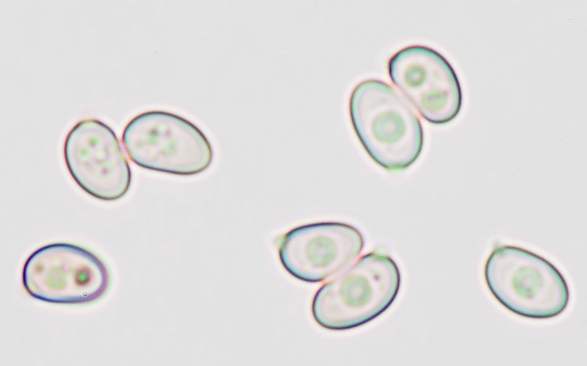Agaricus porphyrocephalus F. H. Møller
Phylum: Basidiomycota - Class: Agaricomycetes - Order: Agaricales - Family: Agaricaceae
Distribution - Taxonomic History - Etymology - Identification - Culinary Notes - Reference Sources
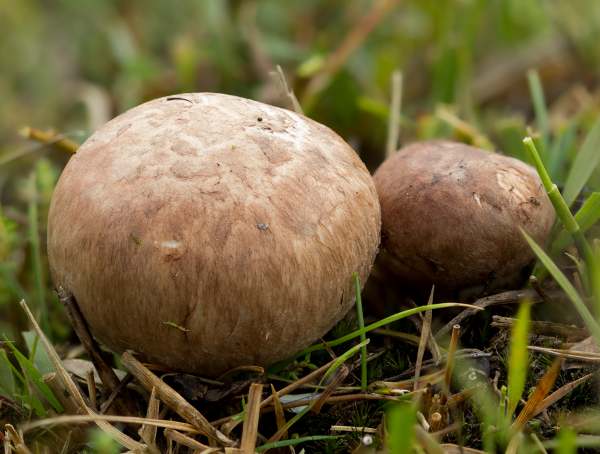
Agaricus porphyrocephalus is a rare find, maybe because it is difficult to distinguish between a brownish Field Mushroom Agaricus campestris and the brownish (perhaps with a purple tinge as the scientific name suggests) Agaricus porphyrocephalus. Most authorities appear to accept that this is not merely a form of variety of Agaricus campestris but a unique species; however, the macroscopic and microscopic differences are not great, and so it would be easy to confuse these grassland mushrooms.
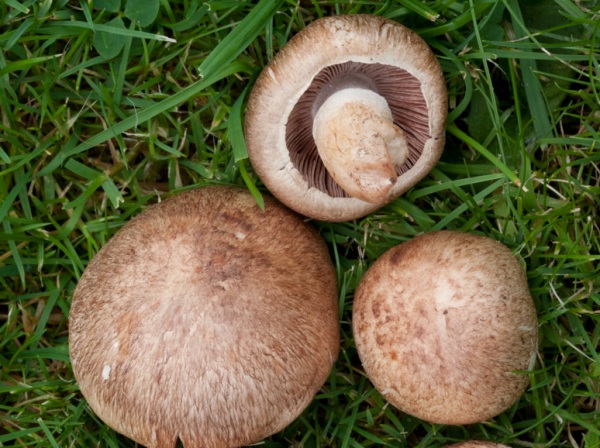
Distribution
Rarely found in Britain, and not yet (mid May 2014) formally recorded from Ireland, Agaricus porphyrocephalus is reported to occur also in parts of North America.
Taxonomic history
When it was first described, in 1950, by Danish mycologist Frits Hansen Møller (1887 - 1962), this mushroom was given the scientific name Psalliota porphyrocephalus. The Psalliota genus is now defunct, and Møller transferred this species to the genus Agaricus in 1952, thereby establishing its currently-accepted scientific name Agaricus porphyrocephalus.
Psalliota porphyrea F.H. Møller is the only synonym of Agaricus porphyrocephalus that I am aware of. (If you know of other synonyms please do let me know.)
Etymology
The specific epithet porphyrocephalus means 'with a purple head' - a reference to the purplish-brown cap scales..
Identification guide
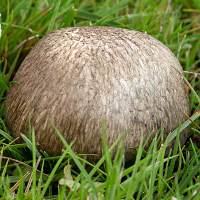 |
CapInitially hemispherical, becoming broadly convex, the whitish caps are covered with fine purplish-brown radial fibrils. Diameter at maturity ranges from 4 to 6cm. |
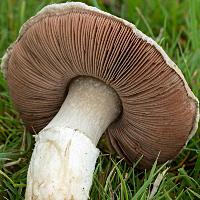 |
GillsPink at first, the free crowded gills turn brown as the fruitbody matures. |
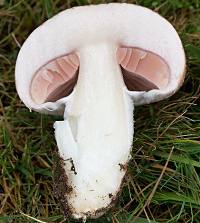 |
Stem3 to 4.5cm tall and 1 to 2cm in diameter, the white stems are smooth above the narrow, ring-like remnants of the partial veil. Stems are cylindrical or slightly swollen centrally and then taper towards a narrower base. The flesh of this mushroom turns slightly pinkish when cut. |
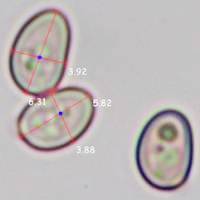 |
SporesOvoid or broadly ellipsoidal, 5.5-7 x 3-4.5µm.
Spore printDeep chocolate brown. |
Odour/taste |
Faintly mushroomy but not distinctive. |
Habitat & Ecological role |
Saprobic, in neutral or acidic grassland, most particularly heathland and moorland. |
Season |
July to October in Britain. |
Similar species |
The Prince Agaricus augustus is similar but much larger and has somewhat larger spores; its cut flesh smells like bitter almonds. |
Culinary Notes
Because of its rarity the edibility of this mushroom is in doubt, and so it should be treated as suspect and should not be gathered for eating.
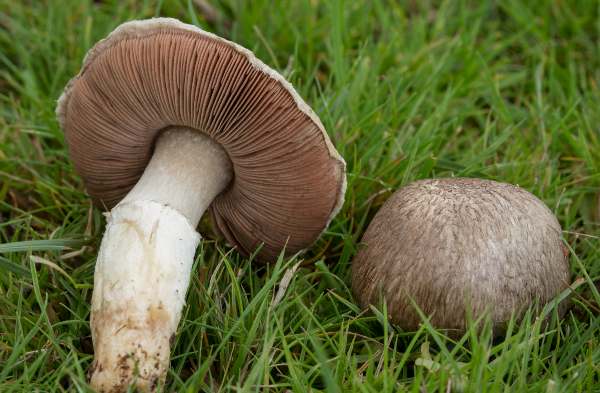
Reference Sources
The genus Agaricus in Britain, 3rd Edition, self-published, Geoffrey Kibby 2011
BMS List of English Names for Fungi
Dictionary of the Fungi; Paul M. Kirk, Paul F. Cannon, David W. Minter and J. A. Stalpers; CABI, 2008
Taxonomic history and synonym information on these pages is drawn from many sources but in particular from the British Mycological Society's GB Checklist of Fungi.
Acknowledgement
This page includes pictures kindly contributed by David Kelly.
Fascinated by Fungi. Back by popular demand, Pat O'Reilly's best-selling 450-page hardback book is available now. The latest second edition was republished with a sparkling new cover design in September 2022 by Coch-y-Bonddu Books. Full details and copies are available from the publisher's online bookshop...

